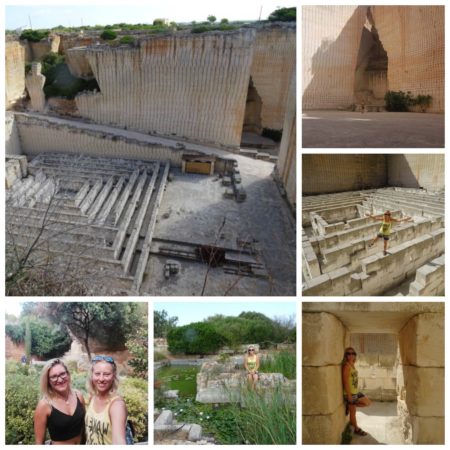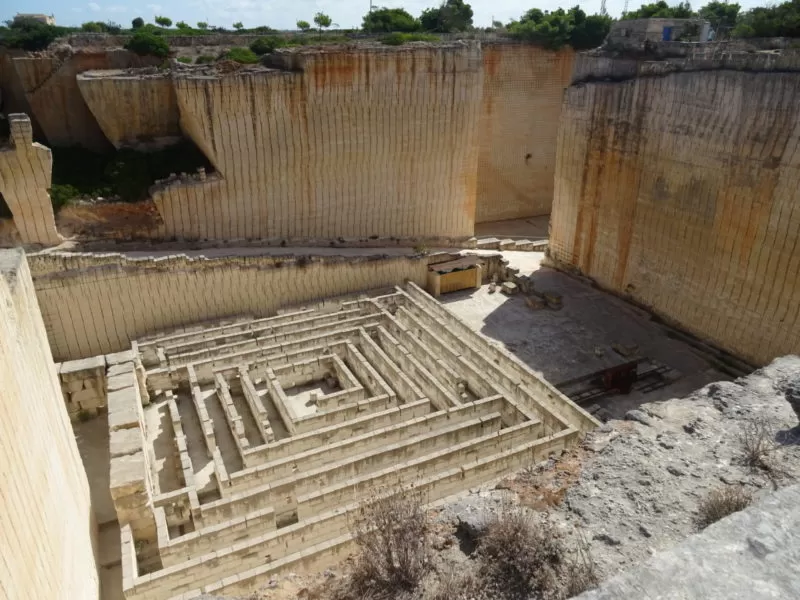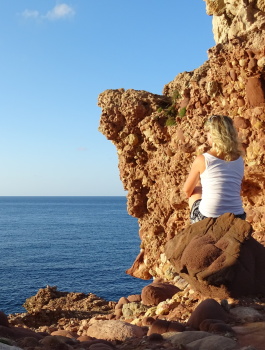Three weeks ago I visited a “hidden gem” which is located 1km from Ciutadella. It’s called Pedreres de s’Hostal and today I would like to present it to you.
Pedreres de s’Hostal
Pedreres de s’Hostal (The s’Hostal quarries), also called Líthica, is a large labyrinth-like “universe” carved out of the land. It’s a result of manual and mechanical extraction of limestone for the building trade. It’s made up of various open-air spaces left uncovered after quarrying the limestone over centuries. The quarries create an amazingly unique landscape and it’s one of the most beautiful ethnological places on the island. They are the imprint of the work of man in the country side landscape, that have been salvaged from disappearance, and regenerated as a grand garden and stone culture centre.
Limestone extraction
The quarries’ main characteristic is their constant contrast and duality. Inside them you can see a very large area with cubic geometry that is the result of mechanical extraction juxtposed with an area of old quarries where the stone was extracted by hand. Limestone is a sedimentary and permeable stone, with different degrees of hardness and shades of colour, from white to reddish ochre. It forms a homogeneous platform in the southern half of Menorca. Due to its building qualities, it has been used since the Megalithic culture up until present times.
The blocks of limestone were extracted manually or mechanically and were cut into different sized pieces depending on its use for a building.
Manual extraction technique
The limestone blocks were cut out with the “escoda” a type of iron pickaxe, leaving irregular scratch marks in the walls. The extraction followed the internal structure of the rock face, resulting in a labyrinth of organic forms.
Mechanical extraction
Since the middle of the 20th century, the blocks have been cut out with circular saws mounted on a wagon. The quarries formed by this method became large, deep and geometric spaces with straight line cuts on the walls.
Líthica
Pedreres de s’Hostal stopped being used as a quarry in 1994. After that, Líthica, a non-profit organisation, rented it in order to save it from being filled up with rubble and disappearing into oblivion and to raise the value of the space. Líthica’s aim was to rescue these quarries by giving them new life through the creation of a comprehensive rehabilitation project. It preserved the site and also created a stone labyrinth and added botanical gardens and orchads. The quarries have been turned into a unique cultural centre that now hosts concerts and exhibitions.
The Labyrinth Gardens
A large series of gardens in a labyrinth of quarried stone, formed by the interaction of man, nature and the passage of time. Because the conditions are comparable to small valleys protected from wind, the quarries were used as vegetable and fruit gardens which when abandoned also became repopulated with the natural fauna, flowers and wild plants of Menorca. Líthica has taken over this area by means of the project “The Labyrinth Gardens”, harmonizing the new gardens, the re-population of the rest of the old market gardens and wild vegetation.
The Botanical Circuit
In a regenerating landscape, a botanical circuit has been developed, a project designed for the conservation, reproduction, and display of Menorcan flora. The Botanical Circuit has grown into a circuit of biodiversity, with framed informative panels covering the subjects of Botany, Zoology, Geology and Ethnology.
There are 14 parts of the Botanical Circuit:
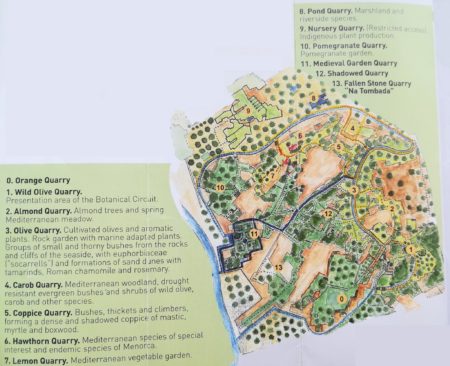
The Medieval Garden
A part of the Labyrinth Gardens is also a man-made enclosed secret Medieval Garden, a cloister, nostalgic of paradise lost. Designed to be a meeting place with a higher order, the medieval garden is represented by the geometric plan to which it was carried out. Thus, around the fountain, framed with roses which symbolize Life and the Soul, the garden extends out with medicinal herbs, symbolizing the Mind through the understanding of nature. The vegetable garden provides sustenance reminiscent of the Body, and lastly the Senses which are represented by the sound of water and the smell of the herbs and flowers, the feeling of all the life which surrounds us. The quit and reclusive athmosphere of the Prows quarry emanates from this garden evoking the repose and worldly remoteness of the cloister of a medieval monastery.
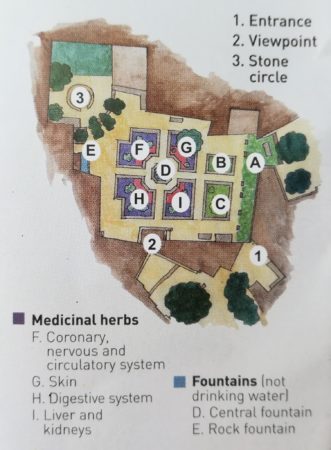
Tourist information
Opening hours:
From April till October: 9:30 – 14:30, 16:30 – sunset (every day except Sunday afternoon)
Rest of the year: 9:30 – 14:30
Price:
Tourist season: Adults 5€, Senior (65 yrs old): 2,50€, Groups (12 people): 3€, Children (under 10 yrs old): free
Rest of the year: free entrance
More information:
Plan of Pedreres de s’Hostal:
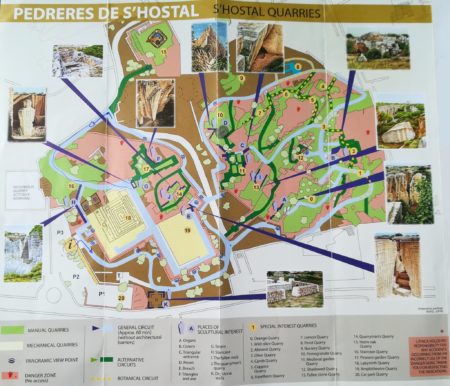
I think this unique place, this “hidden gem”, is really worth visiting. It’s not a typical touristic attraction and I bet that most of the tourist don’t even know about it. I went there with a friend and we really enjoyed the visit. We were walking around, getting lost in the gardens, enjoying the stunning views from the top of the rocks, taking great photos and admiring the magic of this place. We were also climbing up to the labyrinth stones which was forbidden as we found out at the end of our visit. We had a great time though. I just wish I could go to the concert there. There is a great acoustic, as we found out by shouting, so it has to be an unforgettable experience!
